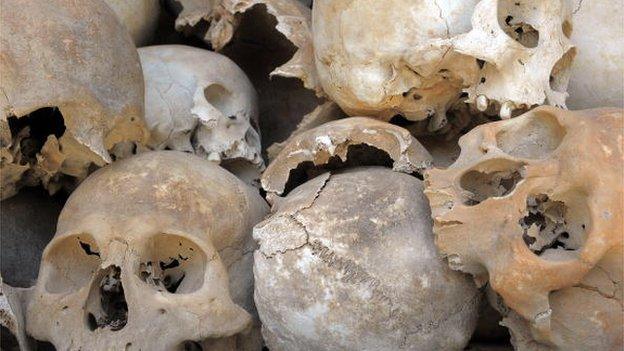Khmer Rouge verdict: 'I live next to my torturer'
- Published
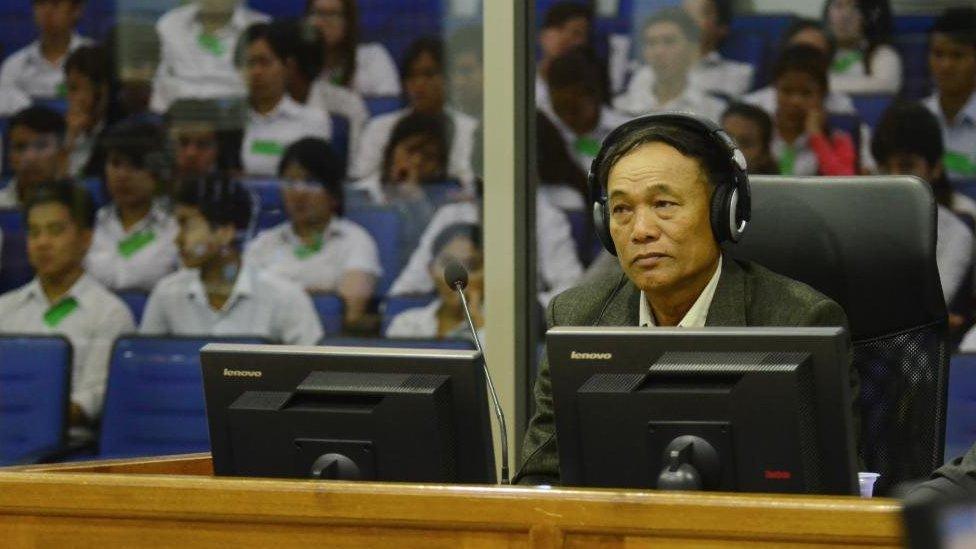
Soy Sen testifies at the Khmer Rouge Tribunal in 2015
After 12 years in operation, the UN-backed Khmer Rouge Tribunal in Cambodia on Friday delivered what will likely be its final verdict. But away from the courtroom, some survivors of one of the 20th Century's greatest horrors are ambivalent about the tribunal's legacy, reports George Wright from Phnom Penh.
Like many 60-year-old men in rural Cambodia, Srei Than can often be found relaxing and drinking beer with friends outside his home. But when he locks eyes with Soy Sen, who lives a short motorcycle ride away down a dusty lane, he quickly looks away.
"Whenever I see him, he walks away," Sen says.
There's good reason for this.
In 1974, when Sen was just 14, Khmer Rouge guerrillas took control of his hometown in Takeo province, to the south of the capital, Phnom Penh. It was a year before they would topple the US-backed government and unleash a four-year reign of terror across the country.
Sen was sent to Kraing Ta Chan prison by the radical communists. He believes it was down to his father being a local official in the district they had just captured.
Upon entering the prison, Sen quickly realised the horrors that were unfolding there, including murder, torture and cannibalism.
"I was climbing a palm tree in the afternoon and from the top I could see two children being taken away," Sen told the tribunal in 2015.
"They usually waited for me to bring down the palm juice, but that day I heard… the sound of the cracking of children against a palm tree."
One of the most brutal guards at the prison was Than, better known by his alias "Small Duch". His namesake, a man known as Duch, ran the infamous Tuol Sleng torture prison in Phnom Penh and was sentenced to life by the tribunal in 2012.
He recalls an event that has stuck in his mind ever since. One day, Sen says, Than ordered him to clear up an area after he had just committed a horrific attack on two female inmates.
"He was so cruel... he tortured me," Sen said on Friday. "One day he raped two women with an M-79 missile by putting it inside them."
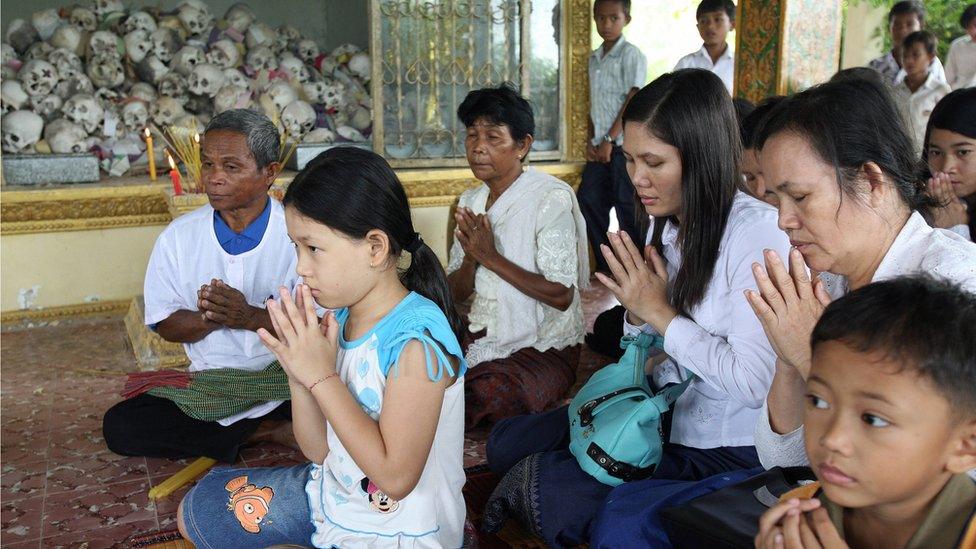
Cambodians pray for Khmer Rouge victims in Takeo province
Kraing Ta Chan was a prison focused on during the second trial of Khmer Rouge second-in-command Nuon Chea and head of state Khieu Samphan. Due to the defendants' old age, the litany of charges against them were split across sub-trials to ensure a verdict on some crimes could be reached.
On Friday, the pair were convicted of crimes against humanity and genocide. Both were given new life sentences to add to those they were already serving after the first trial, which concluded in 2014.
Some victims' groups and the court's international backers speak of the importance of the tribunal in bringing leading Khmer Rouge to justice over the deaths of an estimated 1.7 million Cambodians. But the tribunal has faced widespread criticism over government interference, the length of the trials and the fact only three people have been prosecuted in more than a decade.
Prime Minister Hun Sen, himself a former Khmer Rouge commander, has been outspoken in his opposition to further trials of mid-ranking cadre, claiming it could result in a return to civil war.
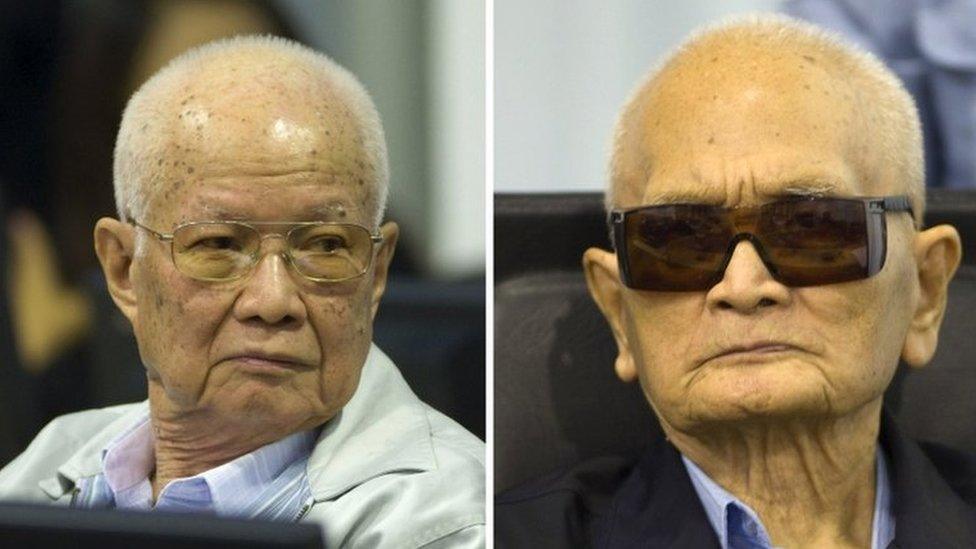
Nuon Chea and Khieu Samphan have been given multiple life sentences
One of the common frustrations among victims is the fact lower-level Khmer Rouge like Srei Than have never faced any kind of justice for the crimes they allegedly committed, with victims and perpetrators often living alongside each other.
Speaking just after seeing Nuon Chea and Khieu Samphan sentenced, Sen - who was a civil party at the court and travelled to Phnom Penh for the verdict - was fairly apathetic about the decision.
"It's taken a long time. Now the verdict has come out but I'm not satisfied," he said. "We do not see any compensation for the victims. They had already been sentenced to life once, what's the point?
"It's not going to heal the deep wounds they inflicted upon us."
However, Sen did say that testifying at the court had released much of the anxiety he harboured regarding former Khmer Rouge still living near his home.
"Before, I felt scared for my safety but not anymore. Before, I did not dare to point fingers because of my worries but after the [tribunal], I have stopped worrying.
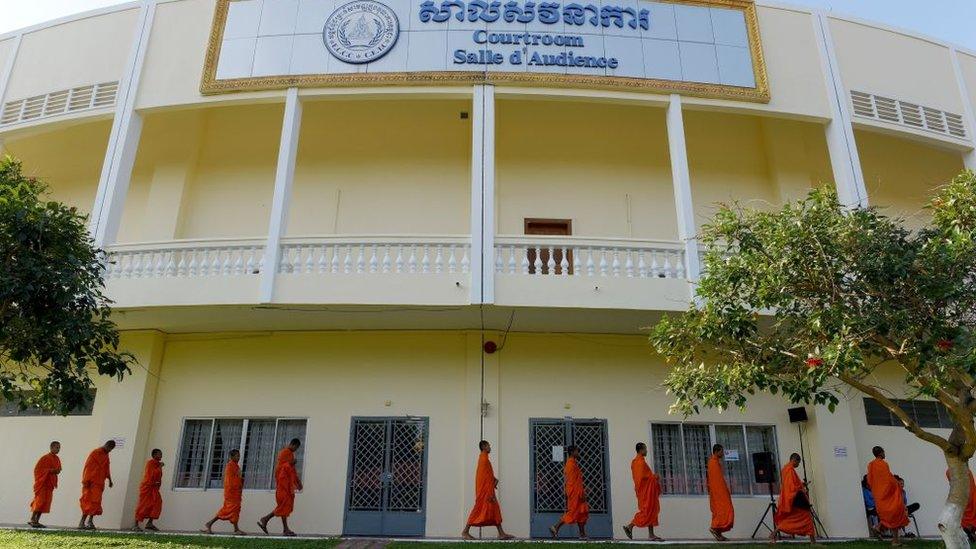
The court has a mixed legacy - it has convicted three Khmer Rouge officials in 12 years
When I interviewed Than in 2014 about the heinous crimes he stands accused of committing at Kraing Ta Chan, he denied them point blank. When he appeared at the tribunal in 2015 - the only witness to require his face be blurred on camera due to the accusations against him - Than rejected Sen's claims that he was responsible for raping women and killing children. But he did appear to show signs of remorse.
"At that time, I was young and I do not remember… the activities or any bad things that happened," Than told the court. "I don't remember everything and that's why I feel hopeless in myself."
Sen is in no doubt that he would have liked to see his former tormentors at Kraing Ta Chan face justice for the crimes they committed - including Than and another guard responsible for the murder of his father. However, this is a hope he gave up on a long time ago.
"We really want this but it's never going to happen."
- Published4 April 2022
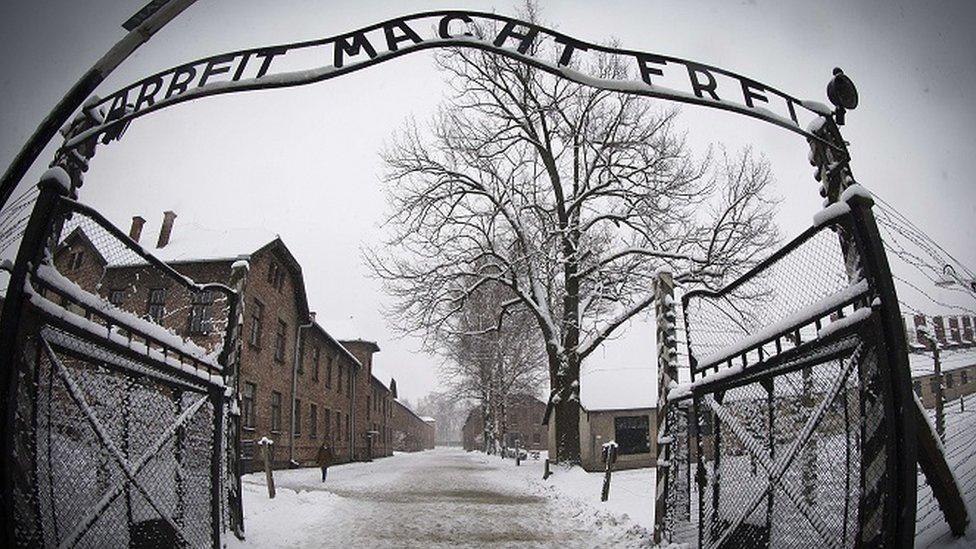
- Published16 November 2018
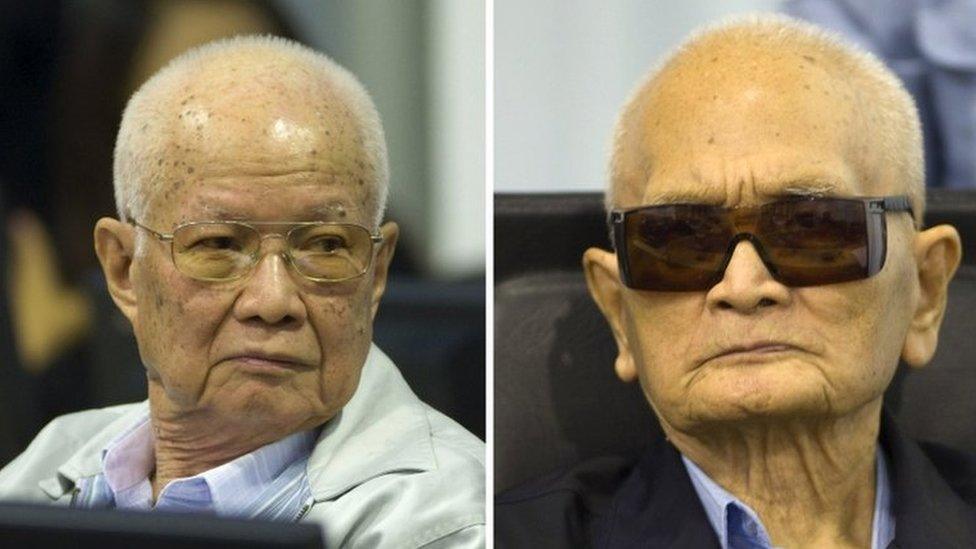
- Published16 November 2018
